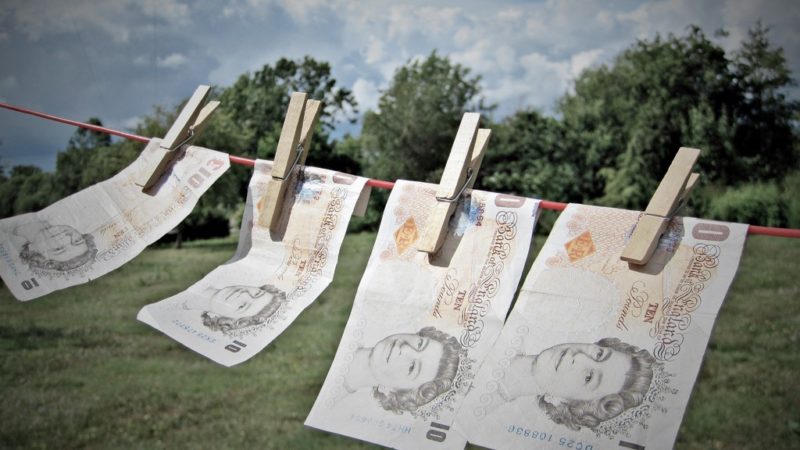'The corruption takes different forms and always leaves innocent people worse-off, but there is no end in sight.'

Prem Sikka is an Emeritus Professor of Accounting at the University of Essex and the University of Sheffield, a Labour member of the House of Lords, and Contributing Editor at Left Foot Forward.
This week, the Minister of State, Cabinet Office and the Treasury resigned during a live parliamentary debate on fraudulent claims from the government’s furlough and loan support schemes during the height of the Covid pandemic. The debate was triggered by the news that the UK government has possibly written-off £4.3bn of the amounts fraudulently claimed.
However, that is not the whole story. The resigning Minister said that losses due to fraud across government were around £29bn a year. He said that the government was making little effort to curb frauds and “a combination of arrogance, indolence and ignorance freezes the government machine”
It is not just the government departments who are victims or even parties to frauds and anti-social practices. The same malaise afflicts numerous sections of society and the regulatory apparatus remains ineffective.
The rot begins at the top. Most political parties and too many Members of Parliament sell themselves to the highest bidder. The monied classes don’t dole out cash, they make investment and the return is compliant legislators, ineffective laws, toothless regulators and a state that privileges their interests. Through the revolving doors, cognitively captured corporate grandees are parachuted into regulatory bodies. In such an environment abusive practices have been normalised.
Frauds and malpractices are central to capitalism. Organisations at the top want to remain there and are not averse to bribery and irregular practices to secure business. Too many challengers want to be masters of the universe too and are not averse to using irregular practices to get there. Thus, there is an endless cycle of corrupt practices. Those who play cat-and-mouse games are lauded for their entrepreneurial skills and are highly rewarded.
The neoliberal obsession with performance-related pay is an invitation to manufacture inflated revenues and profits through frauds and dubious practices. Markets exert pressure for bigger profits but don’t curb predatory practices. Shareholders chase short-term returns and have shown little interest in curbing nasty practices.
The finance industry epitomises all that is wrong. It has been a serial offender and has mis-sold numerous financial products relating to pensions, endowment mortgages, precipice bonds, split capital investment trusts, payment protection insurance, mini-bonds and more. It has rigged interest and foreign exchange rates and forged customer’s signatures. Other than a routine fine, little else happens. The fines are passed on to customers in the form of higher charges. Corporate directors are rarely prosecuted or forced to return their profit-related pay and bonuses. The offending organisations are rarely put out of business and the same cycle of corrupt practices continues.
Rather than tackling corruption, governments cover it up. In 2012, HSBC, a bank headquartered in the UK, was fined $1.9bn in the US for permitting “narcotics traffickers and others to launder hundreds of millions of dollars”. Instead of investigating the bank’s UK practices, the Chancellor, the Bank of England and the financial regulator secretly urged the US regulators to go easy. The Bank of Credit and Commerce International (BCCI) was the site of the twentieth century’s biggest banking fraud and shut-down in 1991. There has been no independent investigation. The long-running saga of frauds at HBOS and RBS shows no sign of resolution.
Big accounting firms routinely rob the public purse by crafting tax avoidance schemes. On numerous occasions, courts have declared their handiwork to be unlawful. Despite powerful court judgments, no big accounting firm has been investigated, fined or prosecuted for selling unlawful schemes. The same firms deliver dud audits; falsify audit work and use abusive insolvency practices to rob innocent people of their pension rights. But no one is prosecuted and no firm is shut-down.
There are rip-off practices in almost every sector and it is hard to find any big corporation that is pristine. Insurance, mobile, and broadband companies are always willing and able to fleece customers unless they move around. Gas, electricity and train companies milk captive audiences through excessive charges. Water companies routinely discharge raw sewage into rivers and dodge taxes. Pharmaceutical companies rip-off the National Health Service through extortionate prices for drugs. Private equity controlled care homes are siphoning-off vast amounts of cash by shifting profits to offshore tax havens through carefully engineered intragroup transactions. We all remember when supermarkets sold horsemeat as beef.
The UK is more corrupt than what most people think. The corruption takes different forms and always leaves innocent people worse-off, but there is no end in sight. The main reason is that the institutions of governance are disconnected from the social steering media i.e. society at large. The political system is unfit for purpose and opaque, and other than a cross on the ballot paper every four/five years people have little opportunity to scrutinise the government.
Governments have become defenders of offending corporations and are rarely proactive in curbing corrupt practices. Regulators continue to sweep thing under their dust-laden carpets. Limited liability granted to companies without any preconditions encourages abuses and shields shareholders and directors from bearing any personal responsibility for corrupt practices. Nothing will change until people use their power to bring about emancipatory change.
To reach hundreds of thousands of new readers and to make the biggest impact we can in the next general election, we need to grow our donor base substantially.
That's why in 2024, we are seeking to generate 150 additional regular donors to support Left Foot Forward's work.
We still need another 124 people to donate to hit the target. You can help. Donate today.



